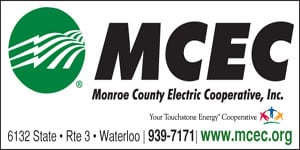Ogs, hoosiers and white trash | Mark’s Remarks
The dictionary defines the phrase “Old Guard” as “the original or long-standing members of a group or party, especially ones who are unwilling to accept change or new ideas.”
Do you know these people? They are all over the place and you run into them often. Let’s call them “the Ogs,” shall we?
First and foremost, most members of the Og are bullies. Even if they are subtle about it or manipulative, they are bullies to the core.
We see the Ogs in politics these days, although many of them embrace cockamamie ideas and outlandish, new age crap for some reason. I won’t get started in on much concerning that topic. We could be here all day.
Ogs are often the cause of dying or “stuck” churches.
As outlined in the definition above, Ogs don’t like change and spend much of their time bossing everyone around or delegating responsibilities in order to keep things the way they are. They don’t like to follow any sort of protocol, job descriptions or, really, rules in general. They want things done their own way. They like to help you (because it’s the right thing to do), but they don’t want to maintain relationships. They don’t want to go too deep with you or be too real because they might have to reveal imperfections.
Ogs in churches are very aware of their own image and work hard to make sure they are perceived as good folks.
In small communities, we see card-carrying members of the Og all of the time.
Most members were big shots in high school or “wannabe” followers, and those years were their glory years; the best they ever were.
The Ogs gave lots of parties and their families most likely had plenty of money. They enjoyed popularity and places on winning teams or positions of campus royalty. They went to private schools and looked down their noses at public school kids who had things like (gasp) problems with delinquency and drugs and alcohol.
They often made comments like “that sounds like a public school problem” and failed to recognize their own classmates were guilty of the same things those poor public school kids were guilty of.
In many cases, there were larger problems with their schools than with the others.
But let’s not talk about that. It might ruffle feathers. We might get emails or nasty notes. Because, you know, people take offense and relate. It’s all about them. Where you went to high school is very, very important in the metro area.
The Ogs may have gone away to college, but they hurried back as quickly as possible to re-establish their place as a big duck in a small pond. Smaller communities are safer places for members of the Og, because they are unable to be brave with their own lives. Especially in smaller towns, the Old Guard is made up of people who are in charge of who is accepted and who is not, mostly because they are afraid.
There’s some sort of checklist in the club by-laws.
The Old Guard is always well aware of who makes the most money in town or who parties the most, much like high school. Ogs always dress well and like to look others “up and down” and judge. Clothing and image are super important at all times.
The members of the Old Guard like to talk about who you are “from home” and often mention how members of their group were born and raised here or married someone born and raised here. By the way, how privileged you are to marry into such a family. Count your lucky stars!
The Ogs’ parents often say things like “remember who you are” and then insert the old family name after that comment. Believe it or not, I’ve heard it countless times.
Members of the Og don’t like for you to tell the truth about their town or the people who run it. They are afraid it may reflect on them somehow. They fear that someone may choose to think poorly of their little pond. Most importantly, it may cause issues with their jobs or their social standing if you bad mouth their town.
You see, almost everything is about them. The Ogs tend to be self-centered and concerned only with themselves.
The Ogs like to look down their noses at surrounding communities and make comments like “Well, you know where THEY are from don’t you?” They call folks with older model cars, outdated homes or any sort of imperfection names like “hoosier” or “white trash.”.
On a side note, and I may have told you this before, a “hoosier” where I grew up was a good thing to be. It meant you were good enough to play basketball for Indiana University.
But I digress.
In the over 30 years of living in this area of the country, and after being around many of these folks, it’s apparent to me the definitions of “hoosier” and “white trash” aren’t always used correctly.
After all, I’ve met a large number of hard-working, lower-middle class folks who have impeccable manners and whose kids are well-behaved and the exact opposite of entitled. They may not have much, but they are grateful and know how to treat others.
I’ve noticed that the size of house you live in or the expense of your car doesn’t always match up with the amount of good manners or class you embody. This is also evident in the children of the Og.
Some of the most ill-mannered, uncouth and low-class people I’ve come in contact with are the same folks the members of the Og would look upon favorably – or they are already members.
Perhaps the terms “hoosier” and “white trash” should be closely examined.
Maybe the definitions – especially in this area of the state – need to be rewritten.







